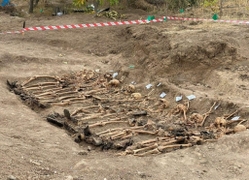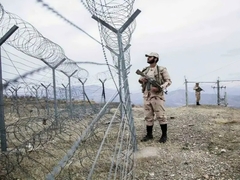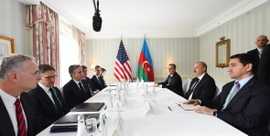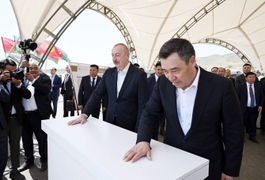Iran’s President Ebrahim Raisi has expressed Tehran’s readiness to help resolve tensions between Baku and Yerevan while cautioning both against forging relations with Israel.
“The Islamic Republic of Iran always considers negotiations and dialogues between neighboring countries as a solution to regional issues,” Raisi said in a meeting with Azerbaijan’s Minister of Foreign Affairs, Jeyhun Bayramov in Tehran, on October 23, according to the official website of the Iranian president.
He expressed hope that the discussions at the “3+3 format” meeting of the “Caucasus Cooperation Group” would serve to strengthen constructive cooperation and regional interactions.
On October 23, a meeting of foreign ministers in the 3+3 format (Azerbaijan, Armenia, Iran, Russia, Türkiye) took place in Tehran. The 3+3 format cooperation mechanism includes the three South Caucasus countries of Azerbaijan, Armenia, and Georgia, as well as Türkiye, Russia, and Iran. It was proposed after the 2020 Second Karabakh War. Only a few meetings have been held in this format, with Georgia choosing not to participate.
Referring to Iran’s principled position, Raisi emphasized that the region’s problems cannot be solved with the intervention of foreign forces, underscoring the need to address regional issues through greater interaction and cooperation among the countries of the region.
“I had already cautioned [Azerbaijani President Ilham] Aliyev that the Zionist regime [Israel] could never be your friend, nor could it be that of any other Muslim country,” he said.
Highlighting the importance of strengthening Tehran-Baku relations and cooperation across various domains, the president stated, “improving the level of interactions and relations with the friendly, brotherly and neighboring country of Azerbaijan is one of the axes of Iran’s foreign policy.”
In turn, Bayramov said at the meeting that Azerbaijan attaches special importance to relations with Iran, adding that “we highly appreciate Iran’s position on the issue of supporting the territorial integrity of our country.”
The Azerbaijani foreign minister emphasized that “in recent months, the two countries have made significant progress in improving the level of relations and promoting bilateral cooperation.”
Iran’s Foreign Ministry Spokesperson Nasser Kanani also commended the format, expressing Tehran’s belief that regional countries possess “effective” capabilities to resolve problems and crises.
Following the meeting, the five ministers issued a joint statement, underscoring the significance of this format and the respect for territorial integrity and internationally recognized borders. While positively evaluating the results of this meeting, they reaffirmed the platform’s openness for the equal participation of Georgia.
The ministers agreed that the next meeting will take place in Türkiye on a date to be coordinated through diplomatic channels.
Tensions between Azerbaijan and Iran had been on the rise, with Tehran viewing Azerbaijani-Israeli cooperation as a security threat. Iran also opposes Azerbaijan’s plans to establish the Zangazur corridor, a transportation link connecting mainland Azerbaijan to its Nakhchivan exclave through southern Armenia, concerned that it would sever its 40-km land border with Armenia.
The establishment of the corridor was agreed upon as part of the tripartite statement that ended the 2020 war between Azerbaijan and Armenia. Yerevan committed to ensuring the safety of transport links between the western regions of Azerbaijan and Nakhchivan, allowing unrestricted movement of citizens, vehicles, and goods in both directions.


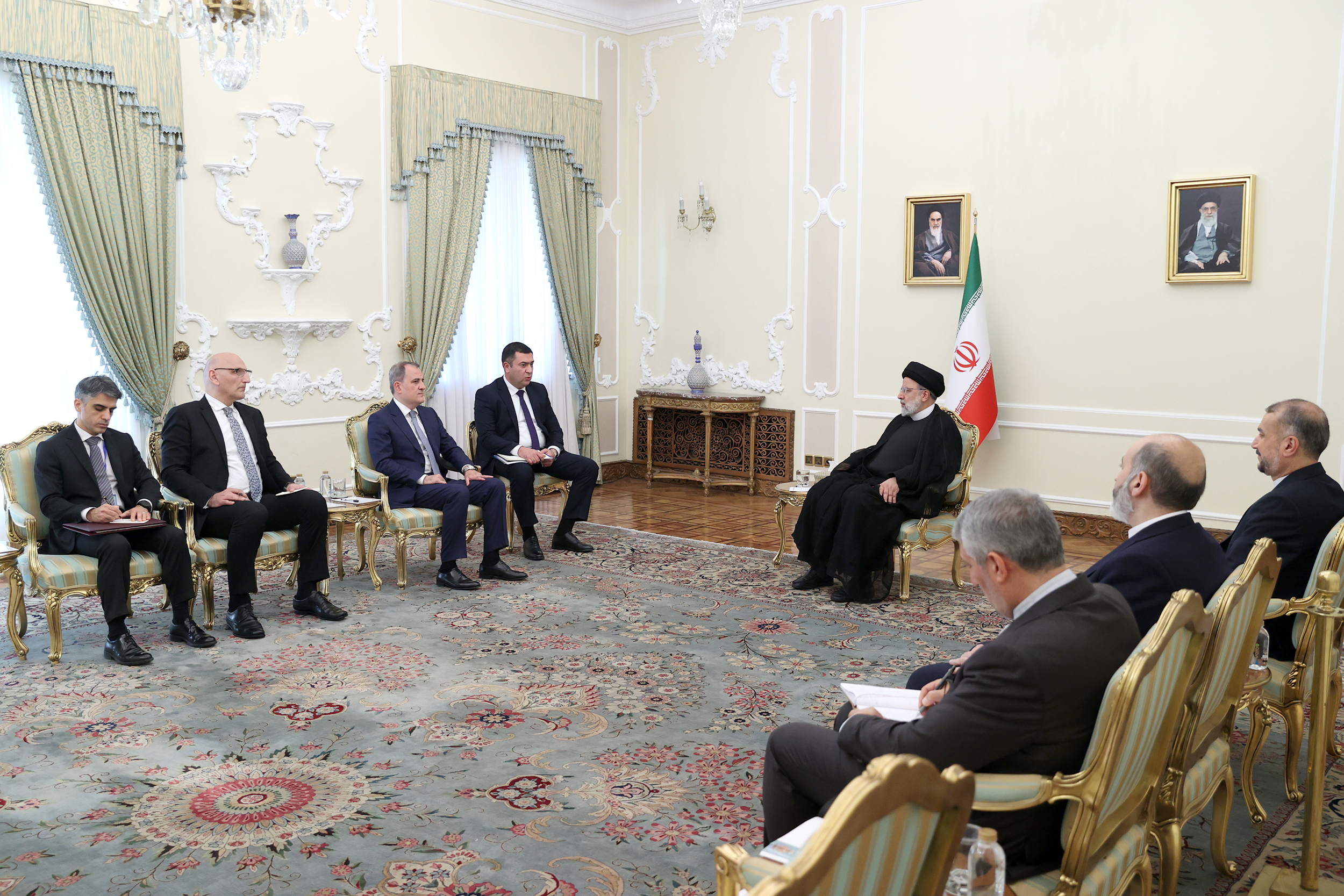




 President Ilham Aliyev shed light on the evolving contours of the peace process with Armenia during an international conference in Baku this week. ...
President Ilham Aliyev shed light on the evolving contours of the peace process with Armenia during an international conference in Baku this week. ...
 A draft resolution aimed at preventing the development and deployment of weapons of mass destruction (WMDs) in outer space, co-sponsored by Japan a...
A draft resolution aimed at preventing the development and deployment of weapons of mass destruction (WMDs) in outer space, co-sponsored by Japan a...
 Kyrgyzstan has joined the extensive reconstruction efforts in the Karabakh region of Azerbaijan, after a series of mega initiatives were launched b...
Kyrgyzstan has joined the extensive reconstruction efforts in the Karabakh region of Azerbaijan, after a series of mega initiatives were launched b...
 The Iranian and Cuban transport ministers have discussed expanding maritime and air transportation cooperation.
The Iranian and Cuban transport ministers have discussed expanding maritime and air transportation cooperation.
